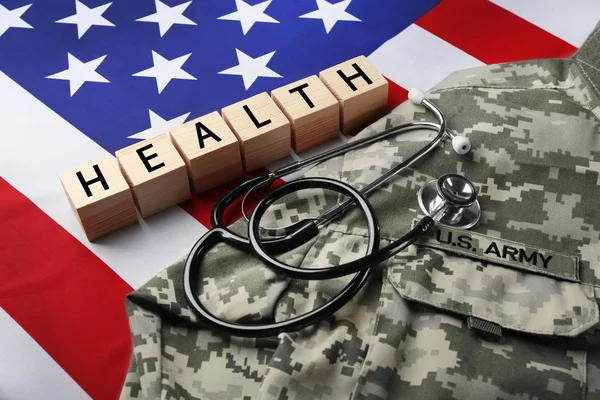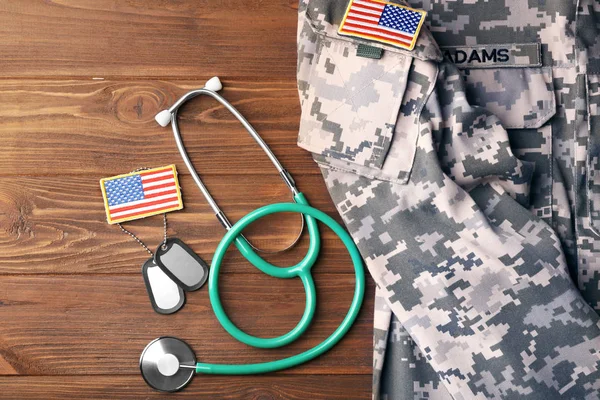The practice of medicine in military settings is known as military medicine. Military medicine comprises a variety of medical and scientific strategies. With a view to best serve the national armed forces. By providing its soldiers with the best treatment throughout operations on the land, sea, and air.
A “Medical Officer” is a medical professional working in the military. Both domestically and abroad. The Medical Corps of the U.S. Army is a staff corps of the U.S. Army Medical Department. It consists of commissioned medical officers.
Medical officers must follow Military Law. As it applies to them. Medical officers must also adhere to certain personal physical fitness requirements. Such as firearms familiarity training, behavior requirements, and clothing requirements. And standards related to their particular working environment.
Military Medicine: A Brief Overview

The administration and practice of medical treatment for military personnel and their family in non-deployed environments are referred to as military medicine.
This might take the form of a healthcare system that mirrors all of the medical specializations and sub-specialties that are available in the civilian sector.
Career Entrance:
Medical students attending non-military medical institutions and taking part in the HPSP are the main sources of new doctors for the US Army.
During this period, they have to study various military textbooks alongside a textbook of military medicine. During their career, if they wish the assistance of a medical paper writing service, they may do so.
Some Medical Corps officers are often recruited via direct commission. But they must complete a specialty or sub-specialty training before entry on active duty. A smaller number of recruits are also gathered from the USUHS.
Fields of Military Medicine:
Military medicine fields in the US Army can be categorized into three different categories. Operational medicine, clinical medicine, and research medicine. Their service is mirrored by their names.
The operational medicine branch offers medical assistance to the soldier and his or her chain of command. Operational physicians should anticipate spending more than 60% of their time on non-patient care and administrative duties.
In clinical medicine, an army doctor in uniform essentially performs similar duties to those of a doctor in the civilian world. These doctors are based at different Army Medical Centers.
The minority of military doctors’ work in the field of research medicine. The majority of these researchers are located in comparatively bigger Army Medical Centers.
Challenges to Military Medicine:
A practitioner of military medicine may face several difficulties. One is geographic limitations. The only sites where one can practice medicine are those where the military maintains medical facilities. Or employs medical personnel.
Military doctors may list their preferred practice sites, but while they are on active service, they must go wherever they are deployed.
Positions such as urology, radiation oncology, dermatology, emergency medicine, etc. are extremely limited. Whereas family practice, general surgery, and medicine are not.

Differences Between Military and Civilian Medicine
The largest variations result from military medicine’s focus on a younger population. They are more susceptible to catastrophic injuries and infectious diseases. While the emphasis of civil medicine is on the elderly and chronic sickness.
Typically, those with known chronic illnesses are excluded from the military. There is detailed research on the fact as well.
Military Medicine Vs Civilian Medicine:
- Wait times may be longer in military treatment facilities. When compared to civilian treatment facilities.
- A reduced cost may compensate for the long waiting time for military treatment. Medical bills are covered or billed at a reduced rate when receiving treatment at the base. Compared to civilian treatment pricing structures.
- Military treatment facilities on base are often limited to generalized medical providers. Hence you will most likely need to choose a civilian provider. If you need a specialized medical provider.
- Military medicine is aimed at a younger and healthier population. As they may get injured during training or combat. Civilian medicine deals with all age groups. And are on average, less fit and may suffer from greater health risks.
- Military medical treatment is more apt to tackle health situations in dire environments. Whereas civilian treatment does not usually need tackling such scenarios.
- Military officers are more well equipped to deal with combat injuries. Prevalent on the battlefield. Compared to civilian medical professionals.
Conclusion
When you decide to pursue a medical career in the military, you are making a decision. That will take you well beyond what you would expect in the civilian sector.
In case you wish to pursue a military career, there are several military math college scholarships in the USA. That may help you on your journey. Each branch in the military has its own duties, strengths, and cultures. But above all, each one of them is worthy of respect.
Author: Joel Strachan has received the credit he needs to be given for his intricate and vibrant compositions. His expertise is admired and respected by many critics and readers alike. His diligent efforts to convey accurate information alongside creating beautiful wordplay are spectacular.
